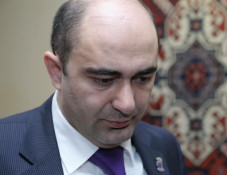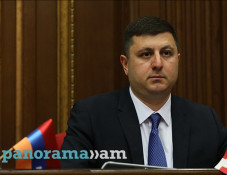
The quicker the decision, the more confident we feel
Every day of our lives, we make many decisions, ranging from insignificant to highly important. (What will I eat for lunch? Should I apply to grad school?) Independent of the positive results of our choices, a team of New York University neuroscientists discovered in their new study, our brains interpret those decisions which take a longer amount of time to make as less confident ones. Increased decision time, then, chips away at our confidence even when the accuracy of our judgment remains high — as high as that of a choice made quickly, Medical Daily reports.
“We showed for the first time that the relationship between decision time and confidence is not fully mediated by evidence — elapsed time plays an independent role,” Dr. Roozbeh Kiani, an assistant professor in NYU's Center for Neural Science and one of the study's authors, stated in a press release.
Kiani further explained to Medical Daily, "This knowledge will ultimately enable us to develop a better understanding of the neuropathophysiology and new therapeutic interventions for a large array of mental and cognitive disorders that are hallmarked with deficits of the decision-making process (e.g., obsessive-compulsive disorder, schizophrenia, and mood. disorders)."
The intuitive brain
When evidence is strong, most of us can make a highly accurate and even quick decision. For instance, we hear a driving rain against our window, we take our umbrella with us to work. Generally, when the available evidence is weak — it is sunny outside, yet the forecaster suggests it might rain — we pause to think before grabbing an umbrella and in end, this decision may or may not turn out to be wise. Could it be that our brains understand our decision-making process and intuits, as an outside observer might, our level of conviction (and so, too, our accuracy) based purely on time spent?
That is one of the questions the current study investigated — the brain’s perceptions of this interplay of time, confidence, and accuracy. "Our main interest is to shed light on the neural computations that underlie the decision-making process and confidence," Kiani told Medical Daily. He and his co-researchers designed an experiment in which the participants were asked to decide on the direction the dots within a motion display would be headed — up or down? Instead of answering verbally, participants in the experiment answered by making an eye movement to either an up or down horizontal bar, and further directed their gaze toward one or the other end of the bar to indicate the level of confidence in the decision. In short, they simultaneously expressed both their choice and the confidence they felt in that choice.
This unique experimental design ensured that participants were using the same information to guide both aspects of the decision. Meanwhile, the researchers tracked participants’ eye movements and recorded each choice, amount of time to make the choice, and the confidence in that choice. As the experiment continued, they manipulated the level of difficulty in predicting the motion of the dots, making it more or less challenging.
So what did they discover? Unsurprisingly, more evidence boosted the confidence of participants’ responses, and time indicated the confidence level of participants — the less time it took to make each decision, the more confident they felt.
"What improves [a] decision is not time per se, it is the evidence accumulated over time. Additional time is useful only if it adds to the overall evidence that is used for the decision," Kiani, whose previous research supports these conclusions, told Medical Daily. "If an endless stream of evidence is available, humans usually terminate the decision-making process and commit to a choice as soon as they accumulate a satisfactory level of evidence. We do not wait endlessly to reach a perfect decision because there is a cost associated with waiting."
In a second experiment, the researchers manipulated the evidence, so that for a brief period participants had no real evidence from which to make their decision. Naturally, the amount of time they took to make their decision increased.
However, though the participants achieved the exact same level of accuracy as in the previous experiment, their confidence decreased. "Sometimes the evidence afforded us is strong, enabling us to decide quickly and accurately,” said Kiani. “Other times, the evidence is lacking; we take longer to decide and tend to be less accurate.” Increased decision time diminishes confidence even in the absence of appreciable changes in accuracy.
Newsfeed
Videos






























